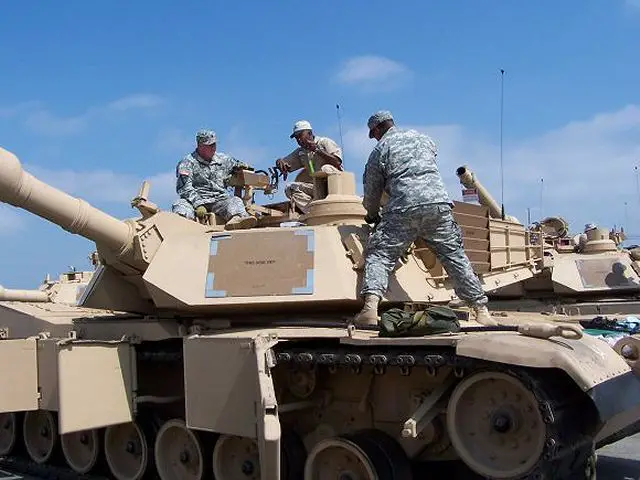U.S. Army research and development for main battle tank M1 Abrams under ECP program 0411121
| a | |||
Military Defense Industry Technology - M1 Abrams ECP program |
|||
| Sunday, November 4, 2012, 07:26 AM | |||
| U.S. Army research and development for main battle tank M1 Abrams under ECP program. | |||
Over
the past decade the only thing that has been able to slow the Army's premier
combat vehicle, hasn't been enemies on the battlefield, but rather the
technological advancements added to the platform. While every vehicle
is designed to have Space, Weight, and Power, or SWaP, margin for incremental
improvements, recent upgrades made to the Abrams M1A2 SEP V2 have left
little margin for future improvements. By Bill Good, PEO Ground Combat Systems, Public Affairs |
|||
 Abrams Engineering Change Proposal program reduces space, weight, and power margins, increases survivability and postures tank to accept future Network components. (Credit photos: U.S. Army) |
|||
| |
|||
"The
Abrams main battle tank was developed over three decades ago in response
to a major Soviet threat. We were fortunate that engineers had the foresight
to design in enough SWaP margin to enable us to host new capabilities
needed during our recent missions in Iraq and Afghanistan," said
Lt. Col. William Brennan, product manager for Abrams. Other
major Abrams ECP upgrades will focus on communications, data transmission
and processing, and survivability. The communications upgrade will integrate
the Joint Tactical Radio System, or JTRS, and Handheld, Manpack, &
Small Form Fit, or HMS, into the Abrams, replacing the current single-channel
ground and airborne radio system, known as SINCGARS. "The
ECP1 upgrade will posture the tank to accept the Army network components
in the near term, while building the necessary margin to accept future
capabilities in the decades to come," added Brennan. |
|||


























